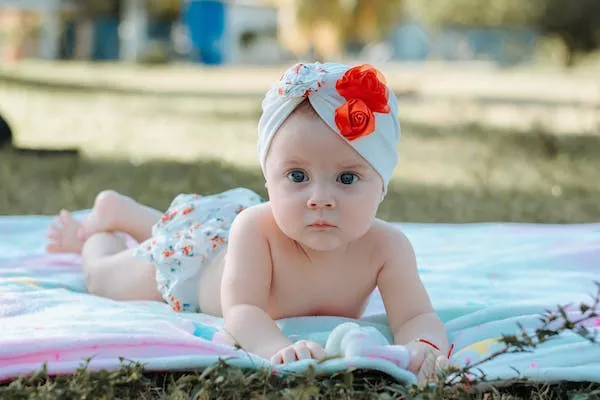Welcoming a newborn into your family brings immense joy and excitement, along with the responsibility of ensuring their health and well-being. One aspect of caring for your baby involves properly washing their clothes. Many parents wonder if newborn clothes should be washed separately from the rest of the family’s laundry. In this article, we will explore the reasons why washing newborn clothes separately is beneficial and provide tips for maintaining the cleanliness and safety of your baby’s wardrobe.
The Importance of Properly Laundered Newborn Clothes
Newborns have delicate skin that is more sensitive and prone to irritation compared to adults. Additionally, their immune systems are still developing, making them more susceptible to germs and allergens. Properly laundering newborn clothes is essential for several reasons:
1. Removing Residue and Irritants: New clothes often contain manufacturing residues, such as dyes, chemicals, and fabric finishes. Washing newborn clothes before their first wear helps remove these residues, reducing the risk of skin irritation and discomfort for your baby.
2. Hygiene and Sanitation: Newborns have limited exposure to the outside world, making them vulnerable to infections and illnesses. Laundering their clothes separately helps ensure that their garments are free from any germs, allergens, or contaminants that may be present in other family members’ clothing.
3. Sensitivities and Allergies: Babies can develop sensitivities and allergies to certain fabrics, detergents, or fragrances. Washing newborn clothes separately minimizes the risk of exposure to potential allergens, allowing you to better identify and manage any adverse reactions.
4. Maintaining Softness and Comfort: Newborn clothes are often made from soft and delicate fabrics to provide maximum comfort for your baby. Washing them separately helps preserve the softness and integrity of these fabrics, ensuring your baby’s comfort during wear.
Tips for Washing Newborn Clothes
To maintain the cleanliness and safety of your baby’s clothes, consider the following tips:
1. Pre-Washing New Clothes: Before your baby arrives, pre-wash all new clothes, blankets, and bedding items. Use a mild, fragrance-free detergent that is suitable for sensitive skin. This step helps remove any potential irritants and makes the clothes ready for your baby to wear.
2. Separating Newborn Clothes: It is recommended to separate newborn clothes from the rest of the family’s laundry. Washing them separately reduces the risk of cross-contamination and ensures that your baby’s clothes receive the appropriate care and attention they need.
3. Choosing the Right Detergent: Opt for a gentle, hypoallergenic detergent specifically formulated for baby clothes. Avoid using regular detergents that may contain harsh chemicals, dyes, or fragrances that can irritate your baby’s sensitive skin.
4. Temperature and Wash Cycle: Follow the care instructions on the clothing labels to determine the appropriate washing temperature and wash cycle. Generally, using a warm or cool water setting and a gentle wash cycle is suitable for newborn clothes. Hot water and vigorous washing can cause shrinking or damage to delicate fabrics.
5. Drying Methods: Air-drying newborn clothes is recommended, as it helps preserve the softness and shape of the garments. Sunlight has natural disinfecting properties, so hanging clothes outside to dry can also help eliminate any remaining bacteria. If using a dryer, select a low heat setting to prevent overheating or shrinking.
6. Ironing and Folding: Ironing newborn clothes is not necessary unless specified on the garment label. However, folding them neatly after laundering helps maintain their cleanliness and makes it easier to organize your baby’s wardrobe.
7. Additional Considerations: Pay attention to accessories such as hats, mittens, and socks, which come into direct contact with your baby’s skin. Wash these items regularly to maintain hygiene.
Caring for Cloth Diapers
If you are using cloth diapers for your baby, it’s important to establish a separate laundry routine for them. Here are a few additional tips:
1. Prepping New Cloth Diapers: Before using new cloth diapers, wash them at least once to enhance their absorbency. Follow the manufacturer’s instructions for prepping and washing procedures.
2. Storing Dirty Diapers: Store dirty cloth diapers in a designated diaper pail or wet bag until you’re ready to wash them. Avoid letting them sit for too long to prevent odors and bacterial growth.
3. Pre-Rinsing and Washing: Pre-rinse soiled diapers to remove excess waste before placing them in the washing machine. Use a detergent that is specifically formulated for cloth diapers and follow the manufacturer’s recommendations for water temperature and wash cycles.
4. Drying Cloth Diapers: Cloth diapers can be air-dried or machine-dried. Sun-drying is an effective way to naturally bleach and sanitize cloth diapers. If using a dryer, opt for a low heat setting to prolong the lifespan of the diapers.
Conclusion
Washing newborn clothes separately is a beneficial practice that promotes cleanliness, hygiene, and comfort for your baby. By removing residues, minimizing potential irritants, and maintaining proper sanitation, you can help protect your baby’s delicate skin and overall well-being. Following the tips mentioned above and establishing a separate laundry routine for newborn clothes and cloth diapers will contribute to a safe and pleasant experience for your little one. Remember, each baby is unique, so it’s important to monitor their skin’s reaction to detergents and fabrics and make adjustments as needed. With proper care, your baby’s clothes will provide the comfort and protection they need during their early months.


